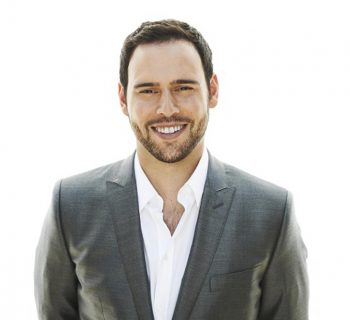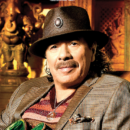BOOKING/TOURING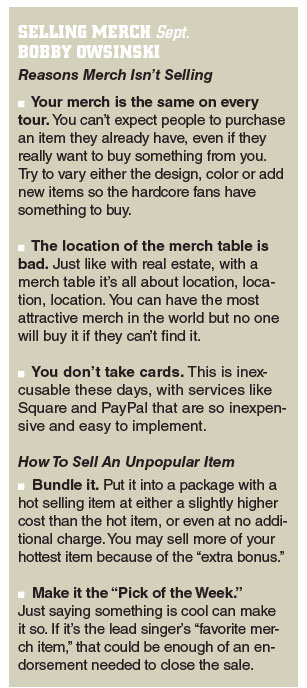
Someone who’s thinking about promoting should treat it like a business. Present yourself in a positive way. Any business who uses Gmail, Yahoo, etc. looks smalltime. If you’re serious, you have to have your own URL and email address connected to that. It presents a far better image. It’s not just what you do at the event. It’s the whole thing. - Tom Ingram, owner/founder Viva Las Vegas March
[If you want to start your own festival], be able to sustain a financial loss at the beginning. These are risky endeavors and there’s an extraordinary learning curve. Partner up with someone who can help you navigate all the trials you need to go through, because there are a lot. Make sure everybody is going to be safe and that you’ve got a plan in place. And make sure you manage your expectations. It’s a difficult business to get into as a grassroots startup. It’s tough to do in today’s marketplace. - Ken Hays, Gathering of the Vibes founder July
[When you play house shows], the competition is taken totally out of it. If you can cultivate your own thing with your own audience, there are plenty of people to go around––if you are willing to work. - Shannon Curtis, singer/songwriter June
ARTISTS IN-STUDIO
If you can record a great album with your own money—or with small investors or donors—to present and be used for sale, distribution and promotion, then you won’t have to be in the studio with a label, spending their money and time on creating a product you could have made DIY keeping more ownership rights. If you bring a final product to the table, they can do distribution and support the things that will make more money, with less to be recouped. -Loren Weisman, music prod. and consultant March
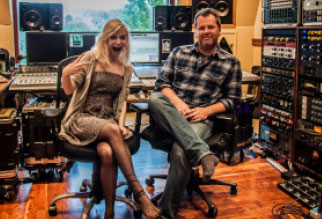 One way to get a good deal is to book the whole project—a full album from start to finish. That’s becoming rare today because it’s a producer-oriented market. There’s usually more than one producer involved in a recording, and each one may book a different studio. So, full-service projects that book a block of time will get the best rates. - Jason Carson, VP of Operations, GM at The Record Plant July
One way to get a good deal is to book the whole project—a full album from start to finish. That’s becoming rare today because it’s a producer-oriented market. There’s usually more than one producer involved in a recording, and each one may book a different studio. So, full-service projects that book a block of time will get the best rates. - Jason Carson, VP of Operations, GM at The Record Plant July
If the song isn’t there, no amount of gear will make it great. Gear will never be the magic sauce that will make a song a hit. Likewise, you can’t blame the equipment when a song isn’t good.
- Christopher Tyng, composer/prod. Sept.
Talent is important, but being focused and having the will is perhaps even more important. The artists that I’ve seen succeed are the ones that are almost desperate for it to happen. Elton John always wanted to be number one and he never gave up. But the greatest artists originate within teams of people—producers, engineers, studios. - Stuart Epps, producer (Led Zeppelin, Elton John). Aug.
You’ve got to be realistic. You’ve got to step outside that box you’re in when you’re in the studio thinking your music is the best in the world. The reality is, it may not be, so you’ve got to be open to criticism. Listen to people’s advice and make sure you keep that team that helps you across that bridge. A lot of artists forget who helped them build that bridge and, when things go wrong, that bridge is no longer there. - Sat Bisla, Pres./Founder A&R Worldwide May
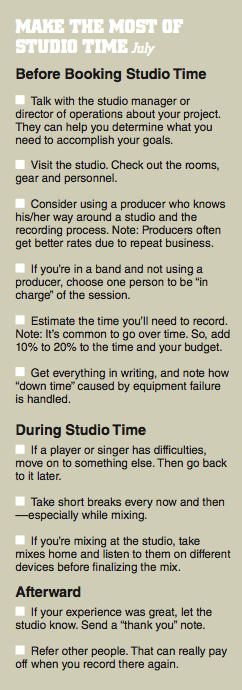 You have to keep making stuff that sounds like shit for a while and know that that’s okay. Your mess-ups can sort of define your sound. Even [my song] “G6” was really an accident. I had this [Roland TR-] 808 and I put distortion on it. There was a melody on top of it. I accidentally dragged the MIDI from this bell over to the 808 bass. - Niles Hollowell-Dhar of the Cataracs March
You have to keep making stuff that sounds like shit for a while and know that that’s okay. Your mess-ups can sort of define your sound. Even [my song] “G6” was really an accident. I had this [Roland TR-] 808 and I put distortion on it. There was a melody on top of it. I accidentally dragged the MIDI from this bell over to the 808 bass. - Niles Hollowell-Dhar of the Cataracs March
FILM/TV COMPOSERS
You can be a mediocre composer, but if the client gets what they need on time and on budget, they’ll come back for more. That’s as important as how effective you are at composing. Taking care of your clients and seeing that they’re satisfied is the secret to success in this business. - Jack Wall, composer/producer June
There’re a lot of people in this business who stand on giant shoulders financially. I think waiting for the right project––if you can manage to do it—is great, but it depends where you are in life. I didn’t move to L.A. until my 30s. If you’re fresh out of scoring school, I would say work on your body of work. Take what you have to take to continue to write music. - John Swihart, composer (Napoleon Dynamite, How I Met Your Mother) Nov.
SUBMITTING MUSIC FOR MUSIC SUPERVISORS/FILM/TV
If you are sending your music to a production company that is creating a new TV pilot, first listen to the songs that this company has chosen before and see what the songs have in common. Is the BPM always the same? Do the songs have a specific sound? Do they have a quick shout-out chorus? Is the hook melody sustained or legato? Is there a pre-chorus or bridge? The right arrangement, lyrics, hook, beat and BPM are key to getting your song licensed. It is also helpful to get familiar with the show you are pitching and its characters. - Susan Hyatt, singer/songwriter, artist coach, author June
[When submitting to a library] there’s something to be said for doing your homework and knowing the players. The blind emails I respond to are the ones where people have done their homework. They’ve looked at our artists. They’ve referenced a recent sync. I know that’s not much, but that person went that extra step. Take the extra step that the person next to you is not willing to do. If you do that, it always shows. - Justin Shukat, President, Primary Wave Music Publishing Jan.
If a company believes in you and sends you a pitch for a show, read the pitch requirements carefully and follow the instructions. Do not take any liberties. If they want a song that sounds like Katy Perry or Daft Punk, make sure your song sounds that way. Some artists may think of this as selling out, but instead think of it as “selling in.” Since the beginning of time, composers have been commissioned by courts and kings to create music. If you can create great commissioned music, then you are a true musician. Always remember you are in the “business of music” not just working in the music business. - Susan Hyatt singer/songwriter, artist coach, author June
Sometimes it’s the label; sometimes it’s the publishing company Kobalt [Music Group who get us synchs]. Occasionally our management gets us placements, but probably not as much as the label or publisher does.
In the industry, everyone knows everyone so you probably don’t have to be in publishing to get a placement. You may have friends in the advertising industry that want to work with you. - Gus Unger-Hamilton of alt-J Nov.
We’re trying to get as many people into our music as we can. Sometimes if someone’s going to put your song on a commercial, but no one’s going to hear it anyway, but they’ll throw me several thousand dollars, why not. I don’t think we’re that prideful. I’ve heard the Black Keys talk about saying no to a lot of things early on; now they’re looking back and saying that was dumb. - Clint Culberson of Modoc Feb.

